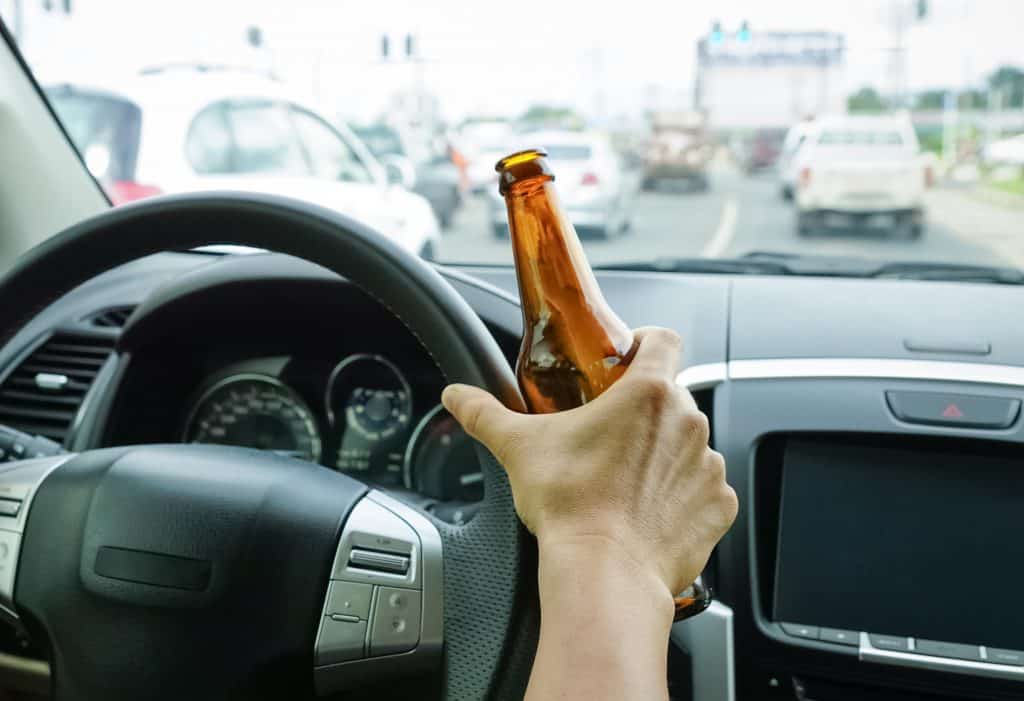Buffalonians withstand the frigid snow all winter. Many await summer, not just to escape the snow, but partly because Buffalo hosts many festivals, parades, art shows and farmer’s markets celebrating the city’s rich ethnic heritage. While eating great food at these events, many participants also consume alcohol. These same people who drive their motor vehicles home after the festivities may be guilty of driving while ability is impaired (DWAI) in New York. Others may take illegal drugs.
Although most motorists know that New York has laws against drunk driving, they fail to realize the gravity of some fatal consequences of alcohol consumption. The numbers don’t lie. In New York State (NYS), excessive alcohol use causes nearly 4,500 deaths annually resulting in an average of 38 years of potential life lost per death. Those are just some of the statistics. Continue reading to see what impaired driving means in New York State.
NY Law Codifies What Driving While Ability Impaired Means
New York Vehicle & Traffic (VAT) § 1192 was updated September 22, 2014. New York VAT § 1192.1 is called “operating a motor vehicle while under the influence of alcohol or drugs.” Section 1 states, “Driving while ability impaired. No person shall operate a motor vehicle while the person’s ability to operate such motor vehicle is impaired by the consumption of alcohol.” The NYS Department of Motor Vehicles (DMV) defines different levels of driving affected by alcohol. Driving While Ability Impaired by Alcohol (DWAI/Alcohol) occurs when the driver has blood alcohol content (BAC) of more than .05 BAC but less than .07 BAC, or other evidence of impairment.
Other forms of impaired driving in New York State deal with drugs: 1.) Driving While Ability Impaired by a Single Drug other than Alcohol (DWAI/Drug) and 2.) Driving While Ability Impaired by a Combination of Alcohol/Drugs (DWAI-Combination). These offenses are listed in NY VAT Section 1192.4 and 1192.4(a).
Measuring Blood Alcohol Content
To determine a DWAI violation of subdivision 1 of NYS VAT Section 1192, look to NY VAT Section 1194. There, Section 1194.1(b) explains when and how field sobriety testing should be administered. VAT Section 1194.2(a) controls chemical testing of a driver’s “breath, blood, urine, or saliva, for the purpose of determining the alcoholic and/or drug content of the blood provided that such test is administered by or at the direction of a police officer.” Drivers on New York’s highways are deemed to have given their consent to a test of their blood, breath, urine or saliva for the purpose of determining the presence of alcohol and/or other drugs. A refusal to submit to a chemical test will result in automatic license suspension, even if found not guilty of impaired driving. This entire set of guidelines is called the Implied Consent Law.
Alcohol can impair thinking, reasoning, and muscle coordination which are necessary to safely operate a motor vehicle. The degree of impairment depends on five factors:
- The amount you drink
- Whether you’ve eaten before or while drinking
- Your body weight
- Length of time spent drinking
- Your gender
There is no quick way to “sober up,” except to wait for your body to metabolize the alcohol. The average metabolism rate is about one drink per hour.
Penalties for DWAI in NYS
In New York State, the penalties for an alcohol or drug-related violation are stiff. They include the loss of driving privileges, fines, and a possible jail term. A comprehensive list is published by the New York Department of Motor Vehicles. DWAI is a violation of the law, not a crime. The mandatory fine for DWAI is $300 to $500. The maximum jail term is 15 days, and the driver will have their license suspended for 90 days. The fines and jail term all increase as the severity of your driving after drinking alcohol increases. Because it is a misdemeanor, the third or subsequent DWAI in New York State within 10 years brings a $750 to $1500 fine, up to 180 days in jail and a revoked license for at least 6 months.
Driving While Ability Impaired by a Single Drug other than Alcohol (DWAI/Drug) has the following penalties in New York: a fine of $500 – $1,000, a maximum jail term of year and license revocation for at least six months. Driving While Ability Impaired by a Combination of Alcohol/Drugs (DWAI-Combination) carries a fine of $500 – $1,000, a maximum jail term of 1 year and revocation of the driver’s license for at least six months.
Additionally, other estimated costs associated with being arrested for impaired driving include fees for bail, towing, court fees and loss of work.
A Commercial Driver May Lose Their Job
Compared to other drivers, every driver holding a Commercial Driver License (Class A, B, or C) is held to stricter Blood Alcohol Content (BAC) standards, and faces tougher penalties, while operating a vehicle that requires a CDL license. A single conviction for DWI, DWAI, or having a .04 percent or higher BAC requires a minimum 1-year revocation of the driver’s license (3 years, if driving a vehicle that requires hazardous materials placards). A second conviction within the driver’s lifetime results in permanent revocation, with a possible waiver after 10 years. A third conviction results in a permanent revocation without any possibility of ever getting it back. Drivers who hold a commercial license should review the Commercial Driver’s Manual (CDL-10). These are available at motor vehicle offices, for additional information about penalties that apply to them.
Contact a DWAI Attorney at the Law Offices of Norman Mattar
In New York State slightly more than 30% of the fatal crashes are alcohol related. There is also an injury every 2 minutes associated with drunk driving. Nationally, from 2000 to 2018 the percentage of crash deaths involving cannabis increased from 9 percent to 21.5 percent, and the percentage of deaths involving cannabis and alcohol also more than doubled, from 4.8 percent to 10.3 percent.
If you’ve been injured in an accident with a drunk or impaired driver, or if you have been deemed to be driving while your ability is impaired, contact Norman Mattar today. Our drunk driving accident attorneys can also handle DWAI violations and stand up for your rights. We will fight for you. Schedule a free initial consultation today or call (716) 633-4300.




